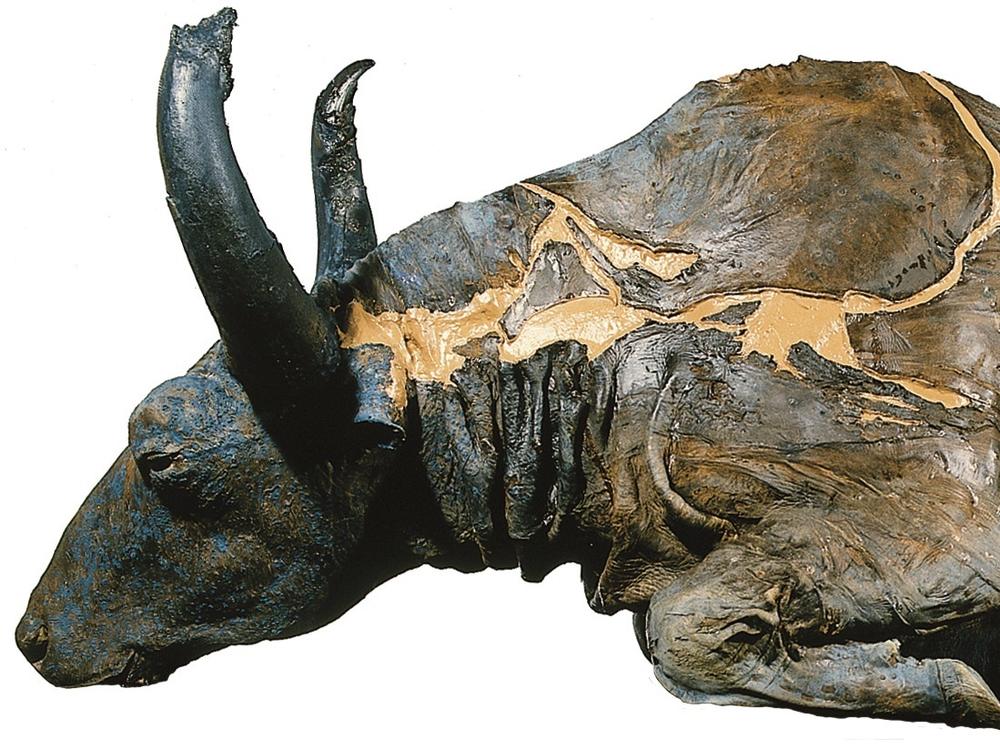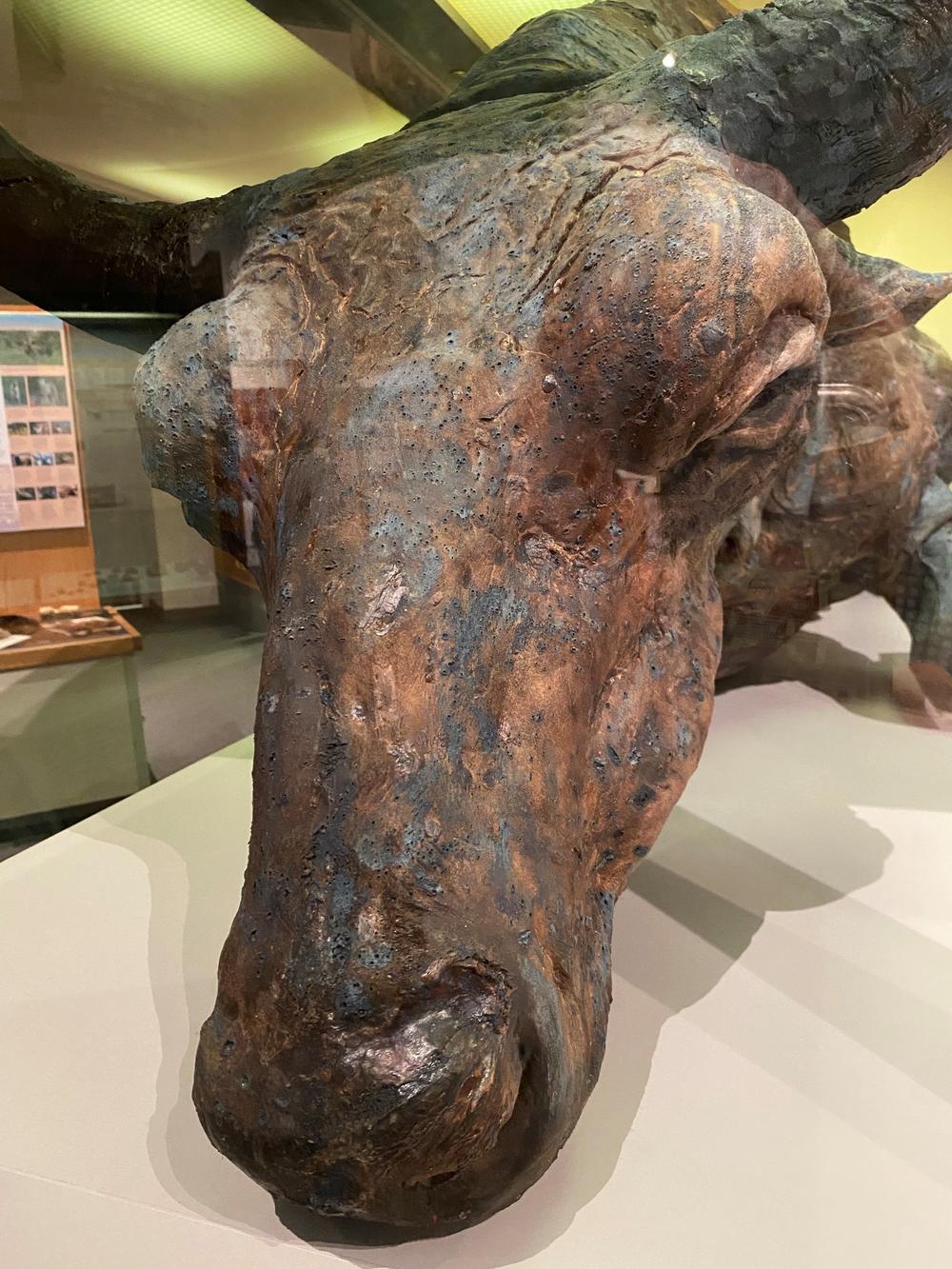Section Branding
Header Content
An ice-age bison was discovered! Then soon eaten — once the foul taste was smothered
Primary Content
In 1979, researchers unearthed the mummified body of a 55,000-year-old Steppe bison in the Alaskan tundra. Shortly after, they sliced off a piece of its neck — to eat!
Here's a news story told in rhyme:
This is not a traditional story.
Not many names or dates, so don't worry.
It's also not incredibly timely,
But it's about an ice age Steppe bison
And a man whose thought process defies me.
Let's start with the creature, lived more than 55,000 years ago
Was brought to his knees by a lion-ancestor foe.
Down went the bison on permafrost ground,
Which kept him from being eaten or found.
Neither predator nor man disturbed the behemoth mass
As it remained encased in a protective frozen glass.
Leaping forward to 1979,
a team of explorers venture out to mine
Gold is what they are on the lookout for,
on the spot where the bison hit the floor
With a hydraulic mining hose, they melted away,
Some frozen sludge, 'til someone said, Whoa! Stop! Hey!
They reported their findings to University of Alaska Fairbanks officials
Dale Guthrie, led the excavation, limiting interstitials.
The skeleton, the skin, the muscles — all in near-impeccable condition,
Guthrie named it Blue Babe, then sliced off a piece for a culinary mission.
"You know what we can do?," he asked
Host a dinner party and with cooking the meat, I'll be tasked.
The Blue Babe neck steak served eight,
With veggies and spices, and lots of booze they ate
Years later, writing about the taste,
Guthrie said, When thawed, one could mistake
The aroma for beef, not unpleasantly earthy.
But once in the mouth, his wife, Mary Lee Guthrie,
Told podcasters from Gimlet, it was worse than beef jerky.
Still, it was a great party, she fondly remembered,
A dreamy symbolism of the meal that endured.
It was a feast; by all counts a true celebration
An "imagining of the human experience on earth!,"
She said, with elation.
Copyright 2022 NPR. To see more, visit https://www.npr.org.


